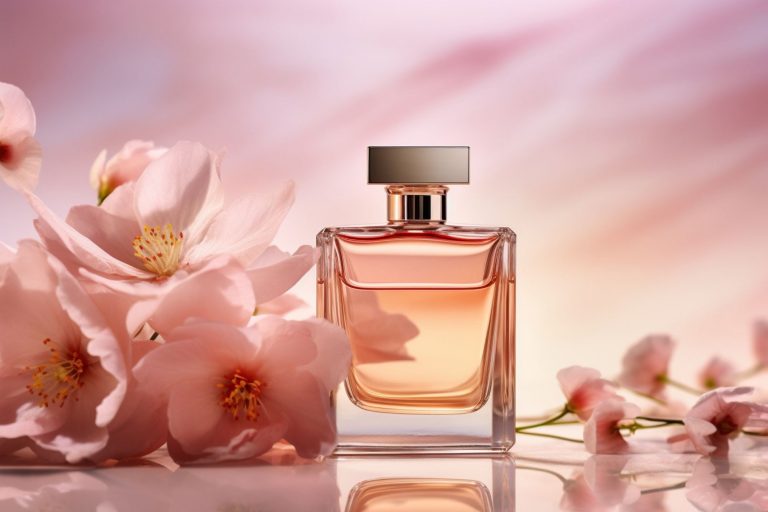“The Psychology of Perfume: Why Certain Scents Attract” is a collaborative post.
Scent and the Science of Attraction
Fragrance does more than enhance your presence—it actively influences how others feel around you. From subtle attraction to strong emotional memory, scent is one of the most powerful nonverbal tools you can wear. It bypasses logic and speaks directly to the brain’s emotional center.
One reason for this influence is biological. Humans are wired to respond to scent. It’s one of the oldest forms of communication, rooted in instinct. In early human evolution, scent helped us detect danger, find food, and choose a mate. Today, while we may not consciously rely on it, scent still plays a major role in how we form impressions, connections, and preferences.
This is part of the reason why more people are exploring their options through a perfume subscription. Rather than sticking with one signature scent for years, they’re rotating through multiple options to see which ones naturally align with their mood, identity, and social context.
How Scent Triggers Emotional Memory
The sense of smell is the only sense directly linked to the limbic system—the part of the brain tied to emotion, behavior, and long-term memory. That’s why even a faint scent can trigger a vivid flashback. It’s not uncommon for someone to smell a familiar fragrance and instantly recall a specific moment, place, or person.
This isn’t just coincidence—it’s how the brain processes scent. You may not remember the details of a room or conversation, but you’ll remember the perfume someone wore. That’s why fragrance leaves such a lasting impression in relationships, whether romantic or platonic. The memory of a scent sticks long after the sound of someone’s voice fades.
What Makes a Scent “Attractive”?
Attraction isn’t always about boldness or intensity. Some of the most alluring scents are subtle, almost skin-like. What matters is how a fragrance interacts with body chemistry. The same perfume can smell completely different on two people. That variation is what makes scent feel personal—and why attraction through fragrance can feel so intimate.
There are, however, certain types of notes that tend to draw people in:
- Amber and musk: Soft, warm, and often associated with sensuality
- Vanilla: Sweet, comforting, and emotionally familiar
- Spices: Notes like cardamom, clove, and cinnamon evoke warmth and depth
- Citrus: Clean, energetic, and often tied to freshness and vibrance
- Woods: Rich, grounding, and associated with calm strength
It’s not just about what smells good—it’s about how that smell makes others feel. The best fragrances don’t overpower. They intrigue. They draw people closer.
Scent Compatibility in Relationships
It’s not just that you like how someone smells—it’s often that their scent feels familiar or right to you. That could be due to biological compatibility. Some research suggests that humans subconsciously pick up on scent markers related to genetic diversity. This might explain why certain people smell irresistible to you, while others don’t register at all.
Because this reaction is deeply personal, the same fragrance might attract one person and go unnoticed by another. That’s where trial and error comes in. Having access to a variety of scents—especially through a perfume subscription—makes it easier to test different types and note which ones consistently generate compliments or interest.
In modern dating, scent is becoming a subtle but strategic part of self-presentation. It’s the detail most people won’t mention out loud, but they’ll remember it later.
Seasonal and Situational Chemistry
Scent doesn’t exist in a vacuum. It changes depending on temperature, humidity, and even time of day. A fragrance that’s perfect for winter might feel overwhelming in the summer. A bold nighttime scent might not fit a professional setting. That’s why context matters.
One fragrance can’t do it all. More wearers are treating perfume like a wardrobe—selecting based on occasion, environment, and emotion. And the rise of accessible scent rotations, like those offered through a perfume subscription, makes that possible without the cost of full-size bottles for every mood.
This flexibility also helps avoid “nose fatigue.” When you wear the same scent every day, your brain stops noticing it. Rotating fragrances keeps your senses engaged—and keeps those around you noticing.
Cultural Perception and Scent Preferences
Not all scents are interpreted the same way globally. In some cultures, strong incense-like scents are traditional and seen as elegant. In others, fresh or aquatic notes dominate. This variation means that scent preferences are often shaped by upbringing, regional trends, and societal cues.
Understanding cultural context is important when choosing a scent for travel, professional environments, or social settings. Fragrance isn’t just personal—it’s social. It can connect or alienate depending on how it’s perceived.
The beauty of today’s fragrance landscape is the freedom to explore these contrasts. With access to a wide range of scent styles, it’s easier than ever to experiment with fragrances from different traditions and backgrounds.
When Scent Aligns With Personality
People often gravitate toward fragrances that match their internal energy. Extroverts might prefer something bolder and more noticeable, while introverts may lean toward soft, clean, skin-like scents. Others may choose a fragrance that helps them become who they want to be that day—calmer, bolder, more grounded.
Fragrance isn’t just about identity; it’s about aspiration. You can wear something that feels like who you are, or something that moves you closer to how you want to feel. That’s what makes it such a personal and powerful tool.







Comments are closed.